Kabale University and Equity Bank Launch Joint Tree Planting Drive to Strengthen Climate Resilience
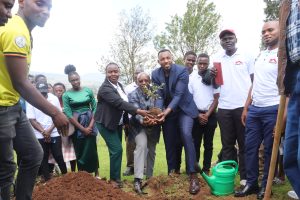 Kabale University has taken a bold step in advancing environmental conservation and climate resilience through a large-scale tree planting initiative held on 12th November 2025. The activity, conducted under the theme “Promoting a Purely Green Environment, Preserving Generations for the Future to Come”, marked the beginning of the University’s long-term target of planting 250,000 trees within five years.
Kabale University has taken a bold step in advancing environmental conservation and climate resilience through a large-scale tree planting initiative held on 12th November 2025. The activity, conducted under the theme “Promoting a Purely Green Environment, Preserving Generations for the Future to Come”, marked the beginning of the University’s long-term target of planting 250,000 trees within five years.
The launch attracted 132 participants, including students, staff, community members, and key partners. Equity Bank, one of the University’s collaborators, joined the effort as part of its own pledge to plant one million trees by 2030. The energy and engagement displayed during the event reflected a growing commitment among young people and local stakeholders to take action against climate change.
During the opening session, Assoc. Prof. Wilson Bamwerinde highlighted the direct link between tree planting, climate stability, and Uganda’s food value chain. He noted that the rise in extreme weather events, soil degradation, and declining yields calls for sustainable interventions that restore ecosystems and support agricultural productivity.
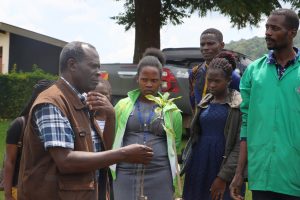 He emphasized that nitrogen-fixing tree species would be prioritized in the project’s first phase to enhance soil fertility and improve harvests for farmers. The species demonstrated and planted included Gliricidia sepium, Leucaena leucocephala, Calliandra calothyrsus, and Sesbania sesban. These trees are known for enriching soils, providing fodder and supporting long-term agricultural resilience.
He emphasized that nitrogen-fixing tree species would be prioritized in the project’s first phase to enhance soil fertility and improve harvests for farmers. The species demonstrated and planted included Gliricidia sepium, Leucaena leucocephala, Calliandra calothyrsus, and Sesbania sesban. These trees are known for enriching soils, providing fodder and supporting long-term agricultural resilience.
Beyond food systems, Assoc. Prof. Bamwerinde reminded participants that trees significantly contribute to human health by reducing many air pollutants associated with disease. He also referenced studies showing that green environments promote positive mental well-being and higher life satisfaction.
The technical session, led by Dr. Adonia Bintoora, provided participants with practical skills in sustainable tree planting. He guided the group through proper pit preparation, seedling handling, manure integration, spacing, and aftercare. His demonstration empowered students and community members with knowledge essential for long-term tree survival.
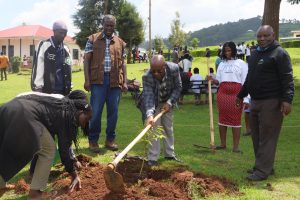 Between 9:40 AM and 11:00 AM, participants planted 250 seedlings, each geo-mapped for future monitoring. The exercise provided not only environmental benefits but also lifelong learning opportunities for students who will serve as future champions of sustainable development.
Between 9:40 AM and 11:00 AM, participants planted 250 seedlings, each geo-mapped for future monitoring. The exercise provided not only environmental benefits but also lifelong learning opportunities for students who will serve as future champions of sustainable development.
In his closing remarks, Prof. Johnny Mugisha underscored the significance of integrating trees into agricultural landscapes. He noted that tree planting offers one of the most cost-effective and far-reaching solutions to climate change, improving soil health, stabilizing food systems, and safeguarding community livelihoods.
He added that for development partners, tree planting provides measurable environmental, social, and economic returns, making it a strategic investment for the future.
The activity marked the first milestone toward the University’s ambitious target of planting a quarter-million trees. The initiative aligns with national and global efforts aimed at promoting climate-smart agriculture, environmental stewardship, and resilient food systems.
Kabale University continues to strengthen partnerships with institutions that share a vision of sustainable development, ensuring that the environment, communities, and future generations can thrive.
Discover more from Kabale University News
Subscribe to get the latest posts sent to your email.



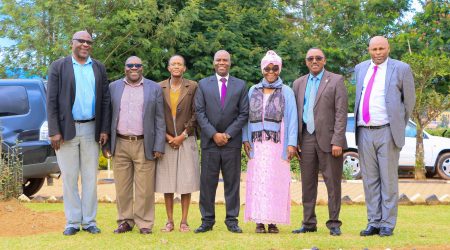
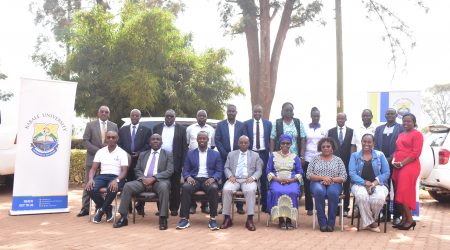
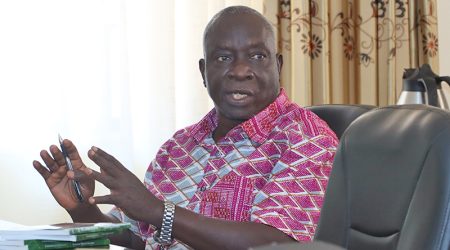

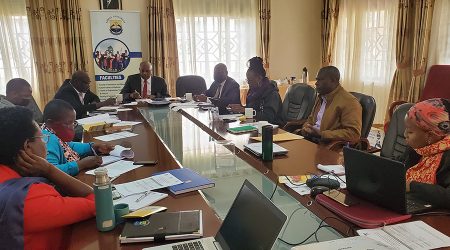
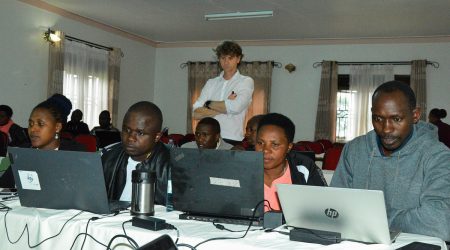

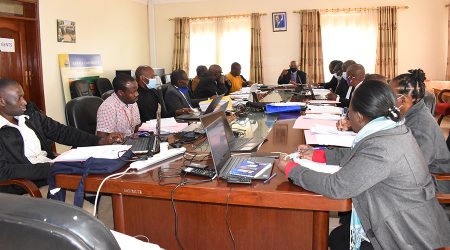
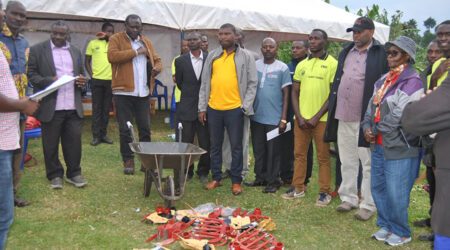
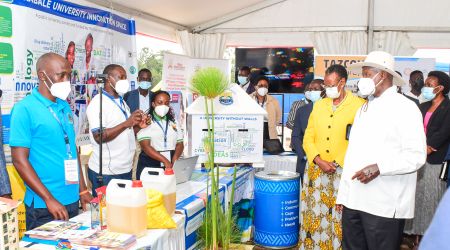
Leave a Reply